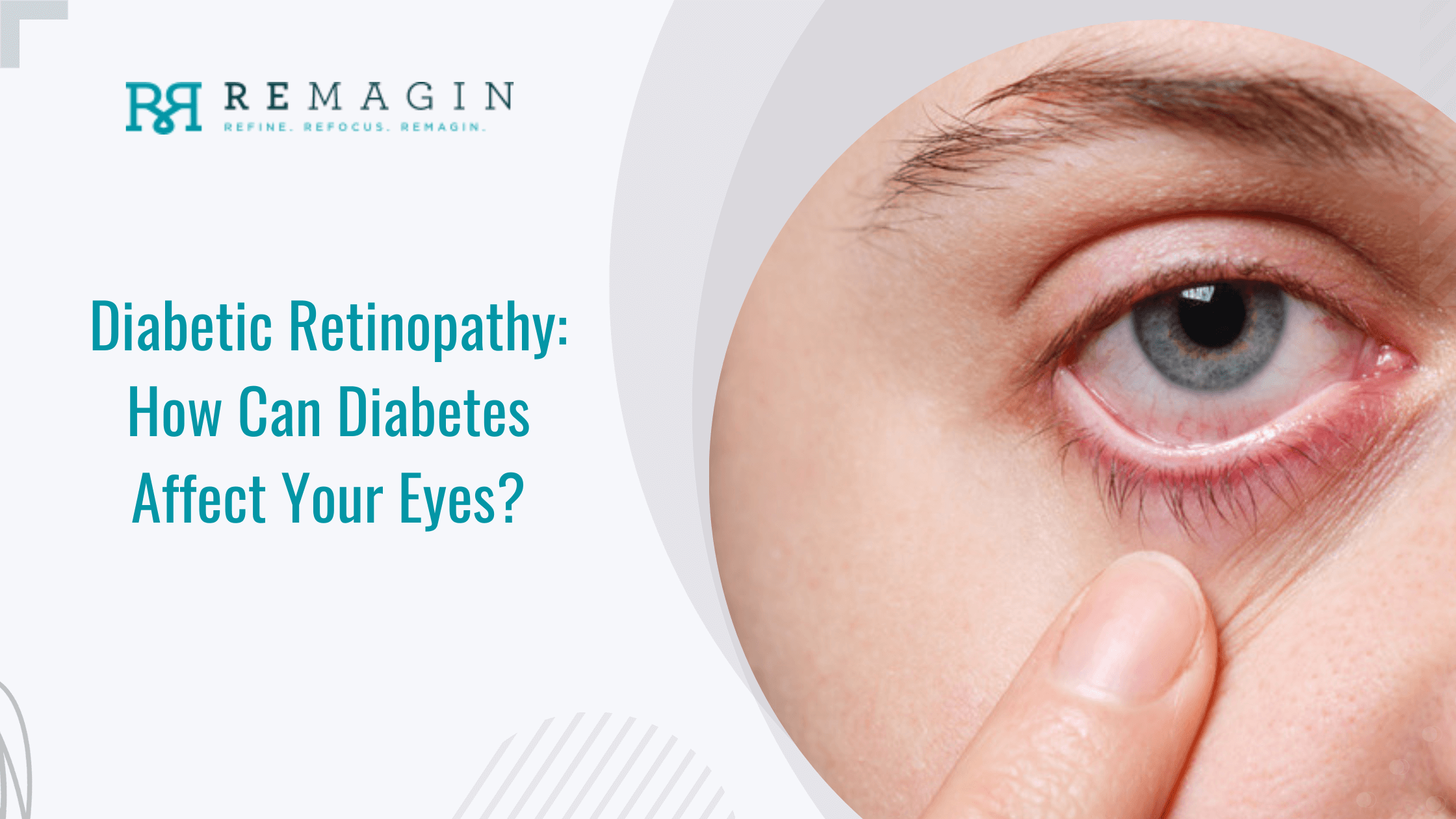



Diabetic retinopathy is a severe eye condition affecting individuals with diabetes, causing damage to the blood vessels in their retina, the light-sensitive tissue at the back of the eye. It is the main cause of blindness among working-age adults in the United States. According to CDC research, one-third of U.S. adults ages 40 years and older have diabetic retinopathy, with about 655,000 experiencing vision-threatening stages of the disease.
As the prevalence of diabetes continues to rise in the U.S., diabetic retinopathy poses a significant public health concern, emphasizing the importance of early detection, timely intervention, and effective management strategies to prevent vision loss. This blog will help increase understanding of how diabetic retinopathy affects the eyes and the significant prevention tips.
Diabetic retinopathy is an eye disease that is caused when damage to the blood vessels in the retina occurs - aka the light-sensitive tissue. It is the most common eye disease in people with diabetes that usually develop gradually.
There are two main types of diabetic retinopathy: non-proliferative diabetic retinopathy (NPDR) and proliferative diabetic retinopathy (PDR). NPDR is the early stage of diabetic retinopathy, where the blood vessels in the retina start to weaken, and small bulges called microaneurysms develop. PDR is the advanced stage, where new blood vessels grow in the retina, causing severe vision problems and even blindness.
Low blood sugar levels can affect your vision if it falls below 70 mg/dL. Even high blood sugar levels can cause blurry vision and other symptoms in the early stages of diabetic retinopathy. Patients may experience mild vision problems such as blurred or distorted vision, color changes, and difficulty seeing at night.
As the disease progresses, severe symptoms may appear which include:
If left untreated, diabetic retinopathy may result in permanent vision loss.
According to research, only around 5% have a significant visual loss. The chances of developing retinopathy for a person with diabetes are directly proportional to how long they have had diabetes. Diabetes, both type 1 and type 2, can cause retinal impairment.
The percentage of people with diabetes who go blind due to diabetic retinopathy varies depending on the severity of the disease and the general level of control over blood sugar levels. During the early stages of diabetic retinopathy, vision problems can be managed and treated effectively with proper medical attention. However, in the advanced stages of the disease, patients can encounter permanent vision loss.
See Also: Diabetic Retinopathy: What Is It?
Diabetic eye disease refers to a group of eye conditions caused by diabetes. If left untreated, it can result in permanent vision loss or even blindness. Early detection, proper management of diabetes, and timely medical intervention can help prevent or minimize the permanent effects of diabetic eye disease.
The best way to prevent diabetic retinopathy is to manage your blood sugar levels and follow a healthy lifestyle. Here are some prevention tips for diabetic retinopathy:
Diabetic retinopathy is a severe eye disease that affects many individuals with diabetes worldwide. Early detection and timely treatment are essential to prevent vision loss and slow down the progression of the disease. If you have diabetes, ensure you get regular eye exams and control your blood sugar levels properly. Remember, prevention always exceeds a cure, and routine eye check-ups can help you detect any early signs of diabetic retinopathy.
Don't let diabetes compromise your vision. Take control of your eye health today with Remagin! Act now and preserve your eyesight with the best diagnosis and care for diabetic retinopathy at our center. Contact us today to learn more about our services and access a better vision of the world!